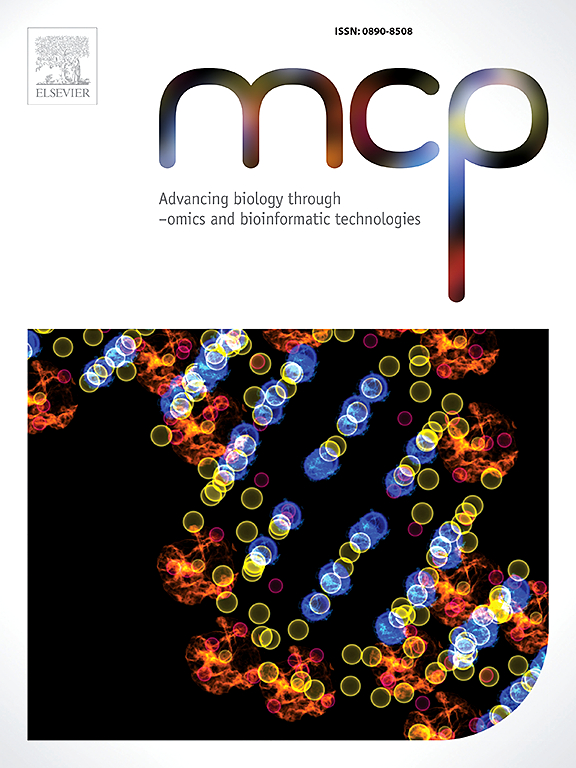DNMT3A triggers tumorigenesis of non-small cell lung cancer through regulation of SLIT2 methylation and SLIT2-mediated macrophage M1/M2 polarization
IF 3
3区 生物学
Q3 BIOCHEMICAL RESEARCH METHODS
引用次数: 0
Abstract
Background
Increased DNA methylation is prevalent in human cancers and is one of the important characteristics of tumors. This research aims to investigate the molecular mechanisms that involve DNMT3A and DNA methylation modification of SLIT2 in non-small cell lung cancer (NSCLC).
Methods
Gene expression was examined using Western blot assay, immunohistochemistry and RT-qPCR. Cell viability and motility were measured by CCK-8, colony formation, Transwell and wound healing assays. Macrophage M1/M2 polarization was assessed through a flow cytometry assay. Using ELISA, the secretion levels of inflammatory factors by macrophage M1/M2 polarization were determined. ChIP, qMSP and dual-luciferase reporter assays confirmed the relationship between DNMT3A and SLIT2.
Results
High expression of DNMT3A was observed in NSCLC patients, enhancing NSCLC cell viability and metastasis. Mechanically, DNMT3A was identified to target SLIT2. DNMT3A inhibited SLIT2 expression through DNA methylation modification in NSCLC. Further, overexpression of SLIT2 impeded M2 polarization of macrophages in NSCLC. And SLIT2 overexpression hindered NSCLC tumor growth in vivo by affecting macrophage M2 polarization. Finally, DNMT3A was found to promote the progression of NSCLC by downregulating SLIT2.
Conclusion
DNMT3A promotes the progression of NSCLC via regulating methylation modification of SLIT2 and SLIT2-mediated macrophage M1/M2 polarization.
DNMT3A通过调控SLIT2甲基化和SLIT2介导的巨噬细胞M1/M2极化,触发非小细胞肺癌的肿瘤发生。
背景:DNA甲基化增加在人类癌症中普遍存在,是肿瘤的重要特征之一。本研究旨在探讨DNMT3A和SLIT2 DNA甲基化修饰在非小细胞肺癌(NSCLC)中的分子机制。方法:采用Western blot、免疫组化、RT-qPCR检测基因表达。采用CCK-8法、菌落形成法、Transwell法和创面愈合法测定细胞活力和运动性。通过流式细胞术检测巨噬细胞M1/M2极化。ELISA法检测巨噬细胞M1/M2极化后炎性因子的分泌水平。ChIP、qMSP和双荧光素酶报告基因检测证实了DNMT3A和SLIT2之间的关系。结果:DNMT3A在NSCLC患者中高表达,增强了NSCLC细胞活力和转移。机械地,DNMT3A被鉴定为靶向SLIT2。DNMT3A通过DNA甲基化修饰抑制NSCLC中SLIT2的表达。此外,SLIT2的过表达阻碍了NSCLC中巨噬细胞的M2极化。SLIT2过表达通过影响巨噬细胞M2极化抑制体内NSCLC肿瘤生长。最后,我们发现DNMT3A通过下调SLIT2促进NSCLC的进展。结论:DNMT3A通过调节SLIT2的甲基化修饰和SLIT2介导的巨噬细胞M1/M2极化促进NSCLC的进展。
本文章由计算机程序翻译,如有差异,请以英文原文为准。
求助全文
约1分钟内获得全文
求助全文
来源期刊

Molecular and Cellular Probes
生物-生化研究方法
CiteScore
6.80
自引率
0.00%
发文量
52
审稿时长
16 days
期刊介绍:
MCP - Advancing biology through–omics and bioinformatic technologies wants to capture outcomes from the current revolution in molecular technologies and sciences. The journal has broadened its scope and embraces any high quality research papers, reviews and opinions in areas including, but not limited to, molecular biology, cell biology, biochemistry, immunology, physiology, epidemiology, ecology, virology, microbiology, parasitology, genetics, evolutionary biology, genomics (including metagenomics), bioinformatics, proteomics, metabolomics, glycomics, and lipidomics. Submissions with a technology-driven focus on understanding normal biological or disease processes as well as conceptual advances and paradigm shifts are particularly encouraged. The Editors welcome fundamental or applied research areas; pre-submission enquiries about advanced draft manuscripts are welcomed. Top quality research and manuscripts will be fast-tracked.
 求助内容:
求助内容: 应助结果提醒方式:
应助结果提醒方式:


